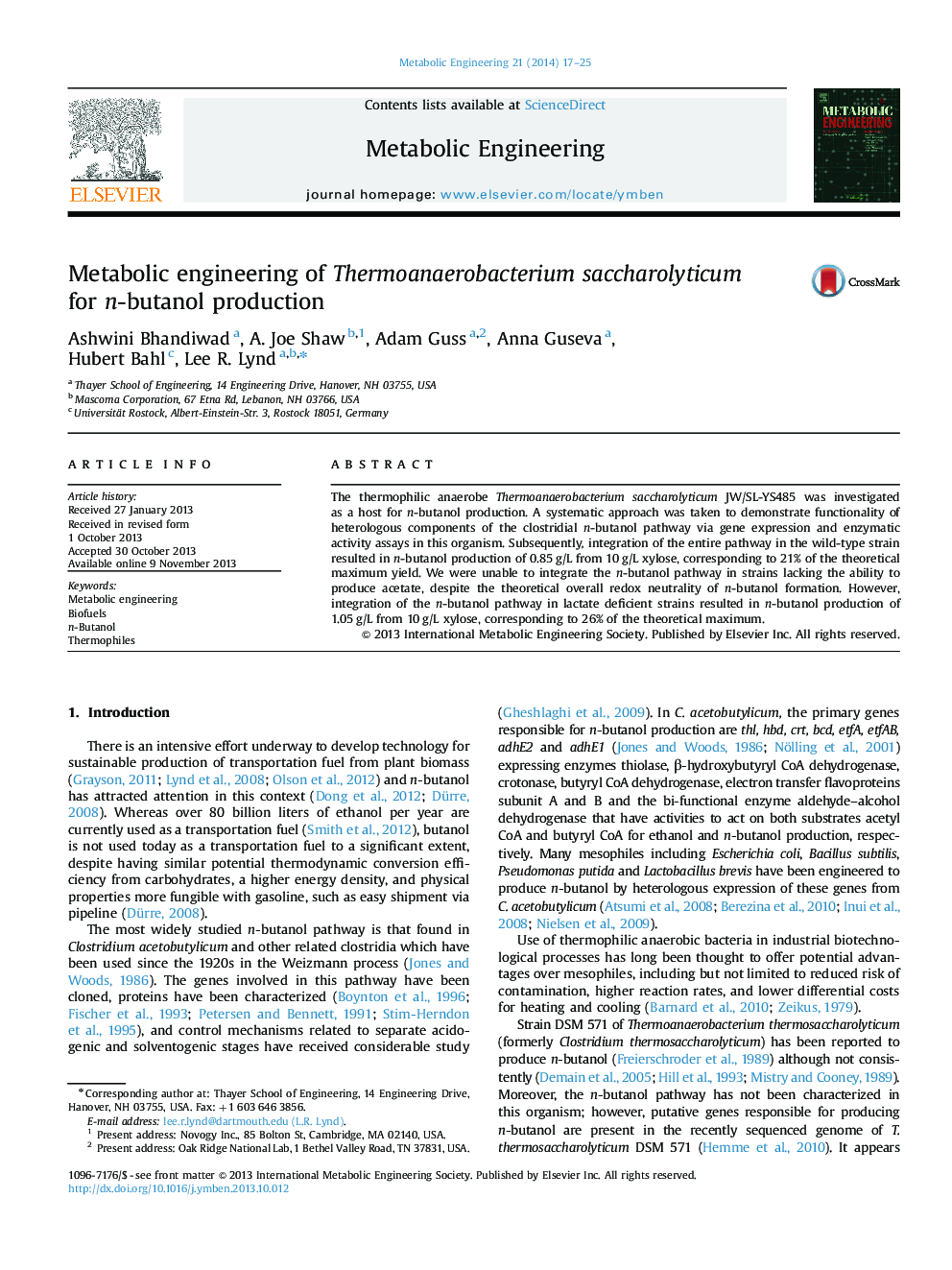| Article ID | Journal | Published Year | Pages | File Type |
|---|---|---|---|---|
| 6494638 | Metabolic Engineering | 2014 | 9 Pages |
Abstract
The thermophilic anaerobe Thermoanaerobacterium saccharolyticum JW/SL-YS485 was investigated as a host for n-butanol production. A systematic approach was taken to demonstrate functionality of heterologous components of the clostridial n-butanol pathway via gene expression and enzymatic activity assays in this organism. Subsequently, integration of the entire pathway in the wild-type strain resulted in n-butanol production of 0.85Â g/L from 10Â g/L xylose, corresponding to 21% of the theoretical maximum yield. We were unable to integrate the n-butanol pathway in strains lacking the ability to produce acetate, despite the theoretical overall redox neutrality of n-butanol formation. However, integration of the n-butanol pathway in lactate deficient strains resulted in n-butanol production of 1.05Â g/L from 10Â g/L xylose, corresponding to 26% of the theoretical maximum.
Related Topics
Physical Sciences and Engineering
Chemical Engineering
Bioengineering
Authors
Ashwini Bhandiwad, A. Joe Shaw, Adam Guss, Anna Guseva, Hubert Bahl, Lee R. Lynd,
